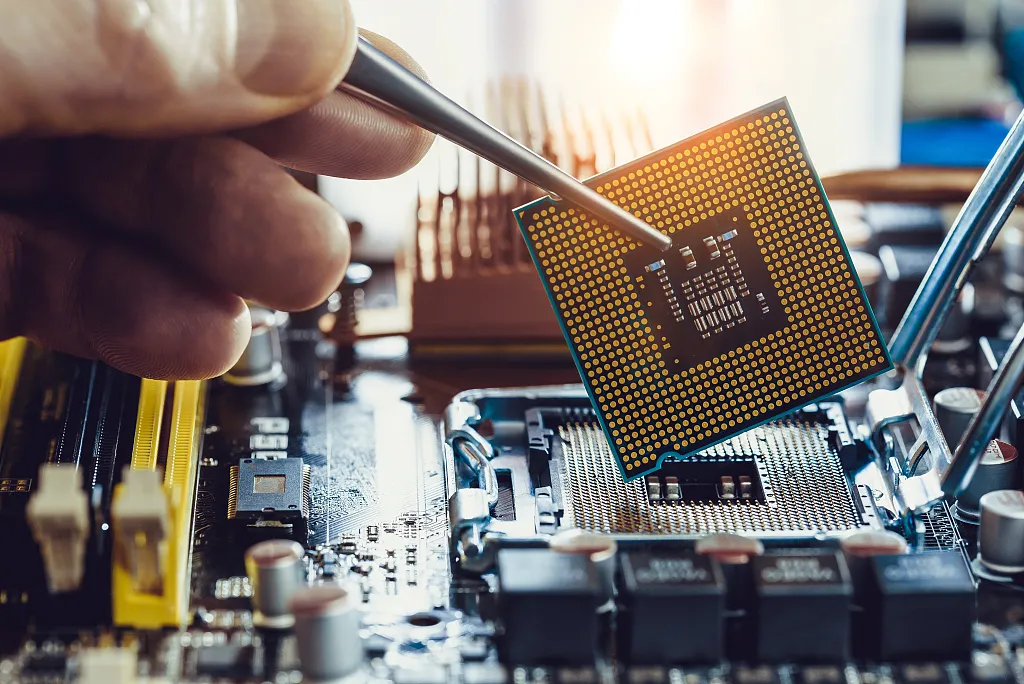Does the White House want data? South Korea: Seriously concerned!
According to the Korea Times and other media on October 7, in response to the U.S. government’s intention to implement the Defense Production Act (DPA), requiring semiconductor companies to provide confidential information, South Korea’s chief trade negotiator officially and publicly expressed “serious concern” and said he was prepared to help defend the interests of two major local chip makers, Samsung Electronics and SK Hynix.
In this year’s annual audit of the Ministry of Industry, Trade and Resources by the Korean National Assembly, Minister Moon Seung-yup said he considered the U.S. request “very rare” and that the ministry would actively work with the U.S. government to intervene in the issue to protect the interests of Korean companies.
The U.S. has issued a “voluntary” questionnaire that gives semiconductor companies 45 days to provide information. Samsung and SK Hynix are being urged to answer 14 questions about sensitive information, including their production plans (memory chips and foundry chips), inventory levels, customer lists, management plans, and target revenues. The sources said that Samsung and SK Hynix expressed concern that the sensitive information they provided would give Intel and U.S. chipmakers the upper hand. At the same time, the U.S. government’s request may also be its move to support Intel’s efforts to strengthen its foundry-related business.

Samsung Electronics announces mass production of 2nm chips in 2025
On October 7 news, according to Taiwan media reports, Samsung Electronics in the company held a wafer foundry forum and said in 2025 will begin mass production of 2-nanometer chips, the first half of next year to begin production of customer-designed 3-nanometer chips, the second generation of 3-nanometer chips are expected to be produced in 2023. Samsung said that the company’s GAA advanced process technology has been developed and is ready for mass production of 3nm chips for customers next year and 2nm chips in 2025. 3nm chips produced by the GAA process have 30% better performance and 50% less power consumption compared to 5nm.
TSMC, which has been pressing Samsung Electronics head, updated its latest process roadmap as early as the end of April this year. It is reported that TSMC’s 4nm process chips will enter the “risk trial” stage at the end of 2021 and mass production in 2022; 3nm chips are expected to go into production in the second half of 2022 and 2nm process is under development. Last September’s news said that TSMC will try out the 2nm process in 2023 and mass production in 2024.

Kingston DDR5 memory has passed Intel certification
Kingston announced on October 6 that two of its DDR5 UDIMMS desktop memory sticks have been certified for Intel platforms, representing compatibility with 12th-generation Core processors, as reported by TECHPOWERUP.
Kingston will launch a range of high-performance DDR5 memory covering low to high capacity, available in a variety of form factors. Officials said more than 10,000 samples of DDR5 UDIMM memory sticks have been sent out to motherboard manufacturers and partners following the development of the latest DDR5 memory to lay the groundwork for an early official product launch.
According to the latest data from research firm TrendForce, Kingston has become the world’s top DRAM memory module supplier, ranking first in terms of revenue. Kingston executives noted that the company has invested heavily in DDR5 memory products, purchasing large quantities of raw materials in advance to meet future high-volume demand for DDR5 amid a global core shortage.

Recommended Reading:








